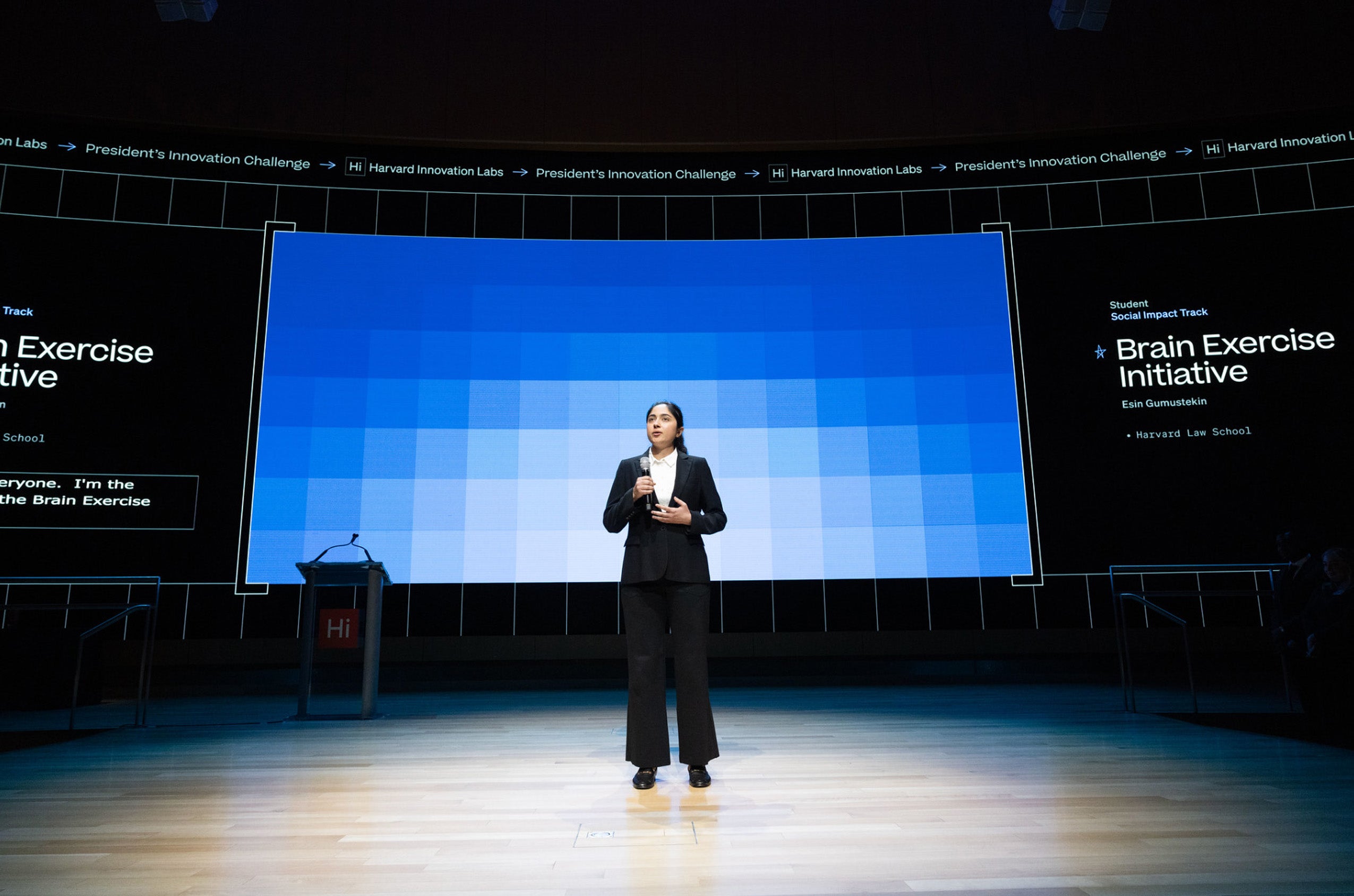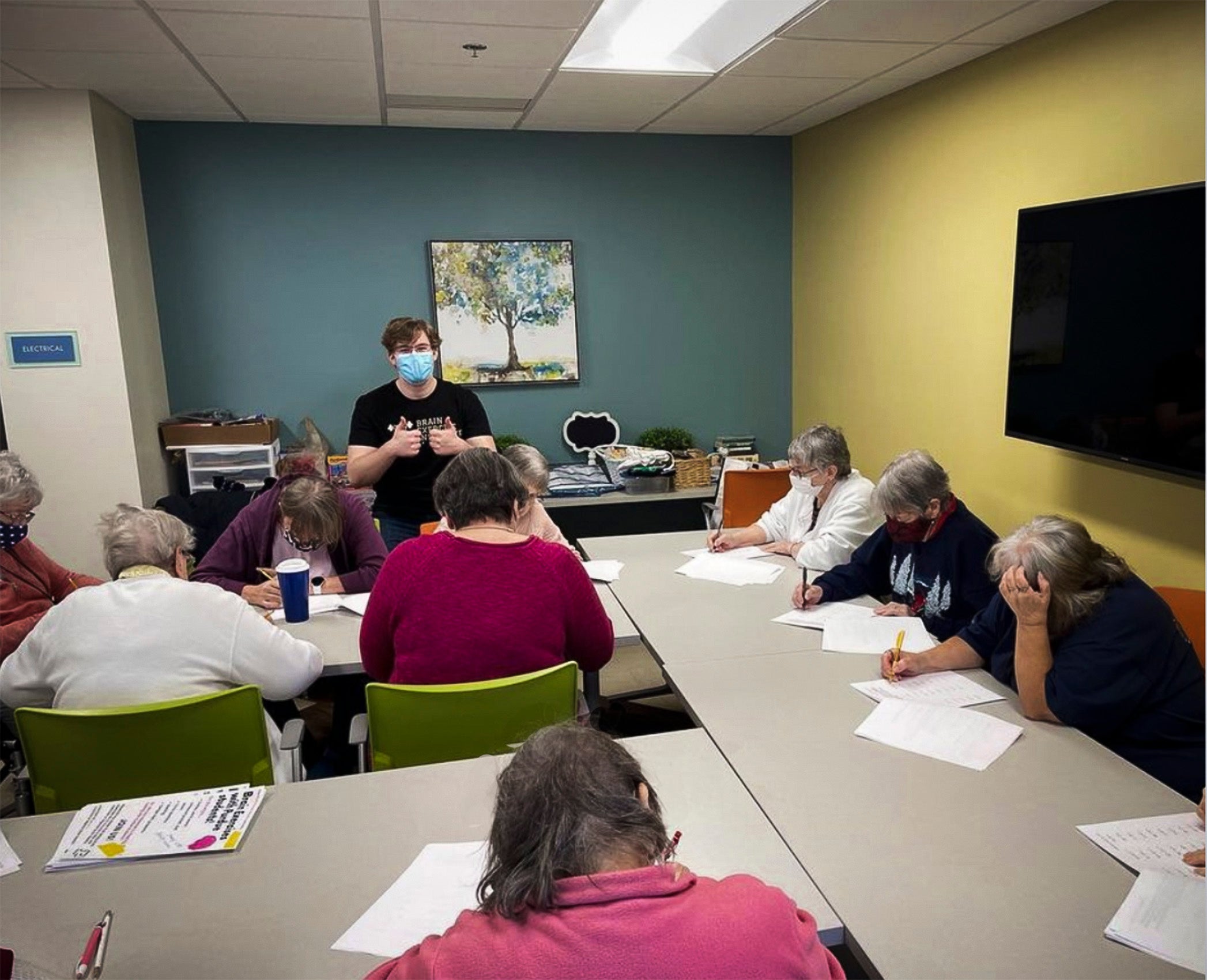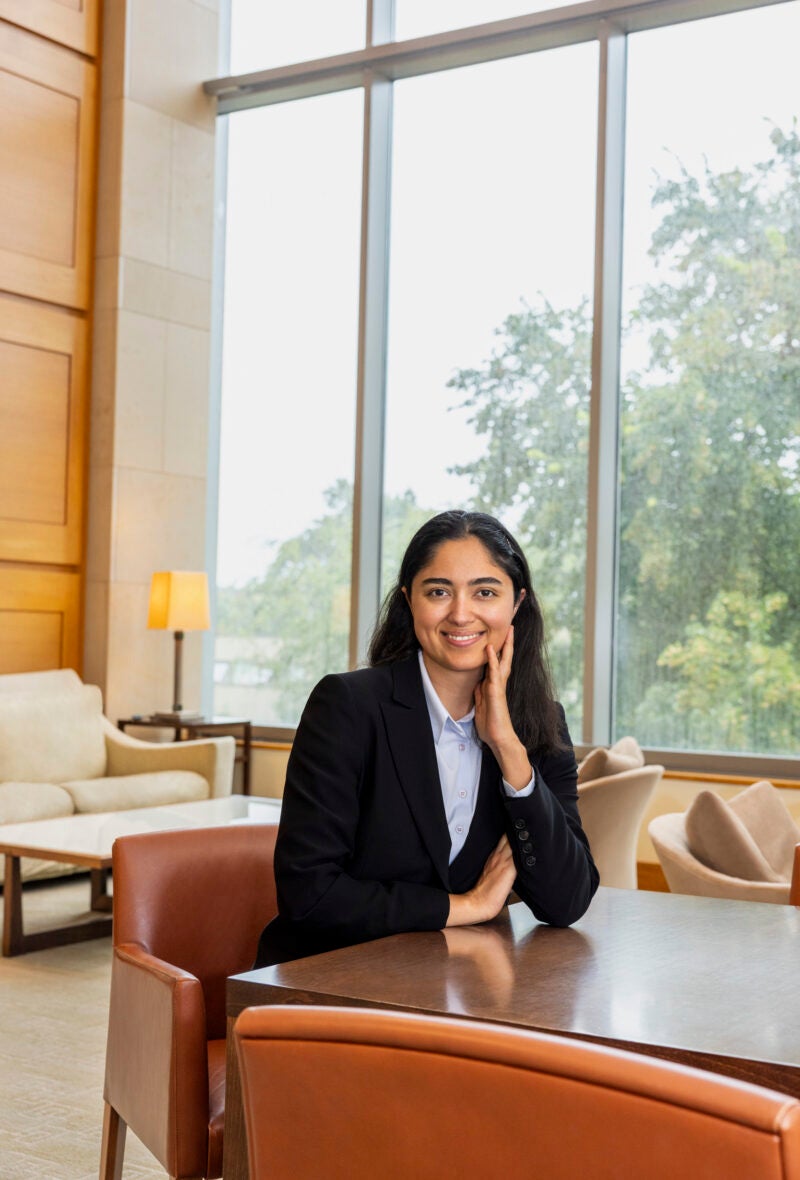During her second year of medical school, while on clinical rotations in Los Angeles County hospitals, Esin Gumustekin ’26 became fascinated with health care policy and reform.
“I firsthand witnessed the difference in care that individuals receive when they have private insurance, or if they are uninsured or underinsured,” she says. “There were so many patients that I cared for, alongside the physicians, who could not receive the care that they wanted because of their insurance status.”
Frustrated by that disparity and wanting to understand better how law intersects with medicine, Gumustekin decided to take a leave of absence from medical school at the University of California, Los Angeles, and enroll in law school, choosing Harvard for the depth of its offerings in health law and related fields.

The experiences of being a medical student and a law student “have just been so different, but so lovely in their own unique ways,” says Gumustekin. While medical school is “definitely more hands on,” her time at the law school has solidified her interest in health care policy.
For two semesters at Harvard Law, she worked on an impact litigation case with the Health Law and Policy Clinic, and she credits Senior Clinical Instructor Kevin Costello and Clinical Fellow Zeinab Bakhiet as important mentors. She collaborated with both and with the school’s Center for Health Law and Policy Innovation to co-write an amicus brief submitted for Texas v. Becerra, a case concerning Section 1557 of the Affordable Care Act, a civil rights provision that prohibits discrimination in certain health programs and activities on the basis of characteristics such as race, national origin, sex, or age.
As a research assistant for Climenko Fellow Elizabeth King, Gumustekin studied hospital corporate governance and finance, and how hospital bond ratings might affect health care. As explained in an upcoming publication, they found that nonprofit hospitals that have a greater Medicaid population are associated with lower bond ratings, resulting in relatively higher interest rates. “We found that bond ratings are basically negatively correlated with a hospital’s percentage of Medicaid and Medicare patients,” she says. “So, participating in the financial markets appears to potentially disincentivize hospitals from caring for Medicare and Medicaid patients.”
One of her favorite Harvard Law classes was Health Law and Access to Medicines with Rachel Sachs ’13. The topics covered — informed consent, HIPAA, the False Claims Act — are ones that, in retrospect, Gumustekin wishes she had studied in medical school before beginning her clinical rotations. Creating a handbook for medical students on relevant legal issues — from medical malpractice to how health insurance works — is a project that she hopes to tackle in the future.
Taking the initiative to address seemingly intractable problems is Gumustekin’s modus operandi.
As a neuroscience undergrad at UCLA, she helped develop several biomedical engineering devices and co-wrote four peer-reviewed manuscripts, three of which were published in the journal Nature.
Addressing Alzheimer’s disease — through everything from summer lab work on an experimental drug to her capstone project — has been a through line for Gumustekin.
Taking the initiative to address seemingly intractable problems is Gumustekin’s modus operandi.
Having witnessed the toll the disease took on her grandmother — “a second mother” who helped raise her while her immigrant parents built their restaurant business in San Diego — Gumustekin searched for a concrete way to improve dementia patients’ cognition and social connection.
During her sophomore year of college, inspired by the work of Japanese neuroscientist Dr. Ryuta Kawashima, she settled on a method of daily regimens of math and reading exercises and recruited a handful of students to volunteer at local nursing homes. The effort very quickly expanded to 50 students and five nursing homes. “At that point, I realized that there was tremendous potential,” she says.
In 2019, she founded the Brain Exercise Initiative, a nonprofit that she has continued to grow. It now has 80 chapters in this country and Canada and has more than 1,300 volunteers. “It’s been such an important part of my life,” says Gumustekin. “I want this to be an organization that lasts for decades to come.”

Her nonprofit’s ability to achieve that goal got a boost this year after Gumustekin was awarded $25,000 as part of the Harvard President’s Innovation Challenge, a monthslong, university-wide competition for entrepreneurs at the university, plus $11,000 as a Social Impact Fellowship Fund grant recipient from the Harvard Innovation Labs. She plans to use the money to partner with UCLA Medical School researchers to evaluate the efficacy of her program’s approach, with the goal of cementing the initiative’s place in the Alzheimer’s disease community.
For the past two summers, in what she describes as a “full-circle moment,” Gumustekin worked in the intellectual property litigation practice at Fish & Richardson on the legal aspects of the medical devices she studied as an undergraduate and the pharmaceuticals she learned about in medical school.
After law school, Gumustekin plans to return to medical school and do her residency in emergency medicine, but she hopes eventually to work on health policy and health care reform issues.
“I think our medical system is highly flawed. It’s really the reason why I wanted to attend law school in the first place,” she says. “I would love to work on policy issues where I can make a change in the hospital system, or more so on a policy level.”
